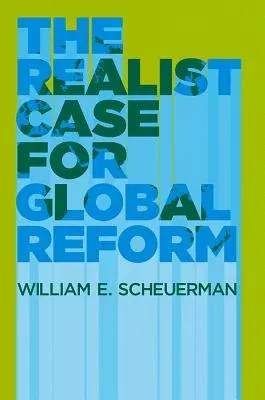Does a hard-headed realist approach to international politics
necessarily involve scepticism towards progressive foreign policy
initiatives and global reform? Should proponents of realism always be
seen as morally complacent and politically combative? In this major
reconsideration of the main figures of international political theory,
Bill Scheuerman challenges conventional wisdom to reveal a neglected
tradition of progressive realism with much to contribute to contemporary
debates about international policy-making and world government.
Far from seeing international reform as well-meaning but potentially
irresponsible idealism, progressive realists like E.H. Carr, John Herz,
Hans J. Morgenthau, and Reinhold Niebuhr developed forward-looking ideas
which offer an indispensable corrective to many presently influential
views about global politics. Progressive realism, Scheuerman argues,
offers a compelling and provocative vision of radical global change
which - when properly interpreted, can help buttress current efforts to
address the most pressing international issues.
After recovering key subterranean strands in mid-twentieth century
realism, Scheuerman underscores their relevance to contemporary
international theory. Criticizing more recent realists for abandoning
their tradition's best insights, he also demonstrates that reform-minded
international theories - including versions of cosmopolitanism,
constructivism, the English School, liberalism, and republicanism -
could all benefit from taking Progressive Realism seriously.
A major contribution both to the history of international relations and
contemporary debates in international theory, The Realist Case for
Global Reform concludes by considering how progressive realism informs
the foreign policies of US President Barack Obama.

